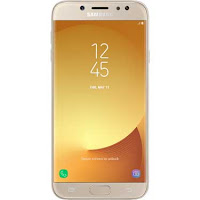HTC U11 life Review
Cell phones run the range as far as highlights and costs, and keeping in mind that we as a whole may love to convey the most sultry, best-performing, most jazzy handset around, models like that tend to likewise be among the most costly. Fortunately for customers who'd rather not spend the better bit of a month's lease on another telephone, there are likewise huge amounts of more moderate alternatives worth looking at.
While some of those more spending plan concious telephones are developed starting from the earliest stage such, others rise as downsized adaptations of the maximum leads, planning to convey a client encounter that is still some place in the ballpark of what we'd get from their more costly brethren, while dialing back on a portion of the less vital consumptions.
That sort of leader lite telephone is exactly what we're taking a gander at today, as HTC presents the U11 life, a gadget that intends to convey a portion of similar highlights and outline components as the current year's sooner U11, at the same time for a large portion of the cost.
What kind of trade-offs are we in store for? Does the U11 life succeed in its mission, or are you better off paying more for the U11 proper? Let's take a look.
In the box:
U11 lifeUSonic earbuds w/ alternate tipsSIM toolUSB Type-C to Standard A cableFast chargerSafety guideWarranty bookletSIM tray guide
Design
What looks like a flagship doesn't necessarily feel like a flagship
HTC's goals for the U11 life are pretty straightforward: take the U11, shrink it down a little bit, and make the phone more affordable in the process. So while the U11 life has the same basic look as its flagship namesake, instead of metal edges and a glass back, we've got a phone that instead incorporates a lot of plastic.
The manufacturer has clearly tried its best to recapture the color-changing effect of the U11's back panel, but it's not quite the same here – there are aberrations where reflections separate into different colors, and the effect is just not as impressive as we saw with the U11. That said, you have to be paying a bit of attention to spot the differences, and at a casual glance HTC's efforts are pretty successful here.
We are curious how well the new acrylic back will stand up to scratches over time, but so far we haven't run into many problems. Like the flagship, this model is also IP67-rated against dust and water ingress.
Phone layout is very similar to the U11, with maybe the most pronounced difference being the absence of antenna lines around the handset's edge, thanks to the new plastic exterior. Buttons and the SIM tray are in the same places, as is the front-mounted fingerprint scanner. Around back, the camera may be larger this time around, and downgrades from a dual to single-LED flash, but placement is largely consistent. Down below, the speaker slot and USB port swap places.
That is not awesome, and if there's one extremely irritating thing about the U11 life's outline, it's that the base edge USB Type-C port is mounted topsy turvy, over to the telephone's correct. Sort C has been an extraordinary headway for cell phones, liberating us from the problem of ensuring our smaller scale USB links were confronting the correct way. Be that as it may, we're so acquainted with focused USB ports, that this move fixes a considerable measure of that comfort, driving you to by and by give careful consideration than you should need to while charging your telephone.
Display
A solid display that doesn't hits all the right notes
While the U11 ran with a 5.5-inch Quad HD show, the U11 life offers a more preservationist 5.2-inch 1080 x 1920 screen. Luckily wonder is solid, regardless of the way that apex sparkle isn't as high as on the U11. Shading precision is furthermore ordinary however not perfect, realizing a board that feels great on a mid-go handset like this.












No comments:
Post a Comment